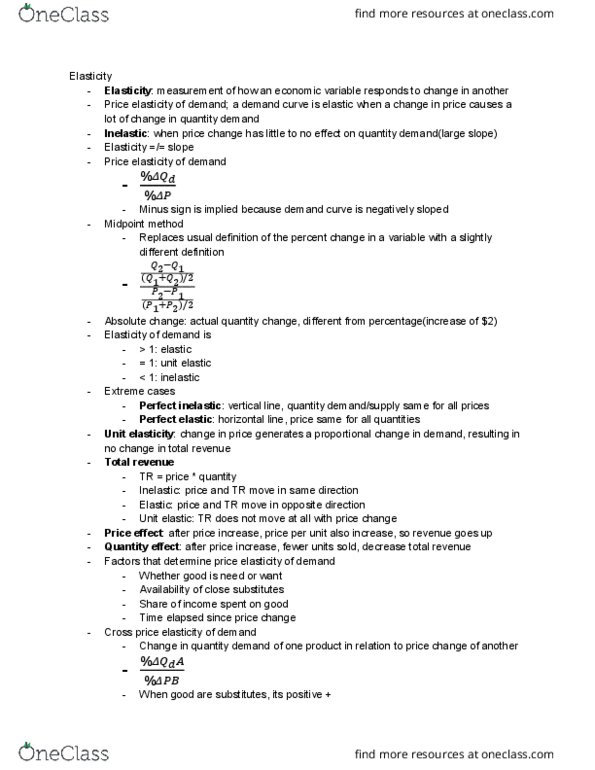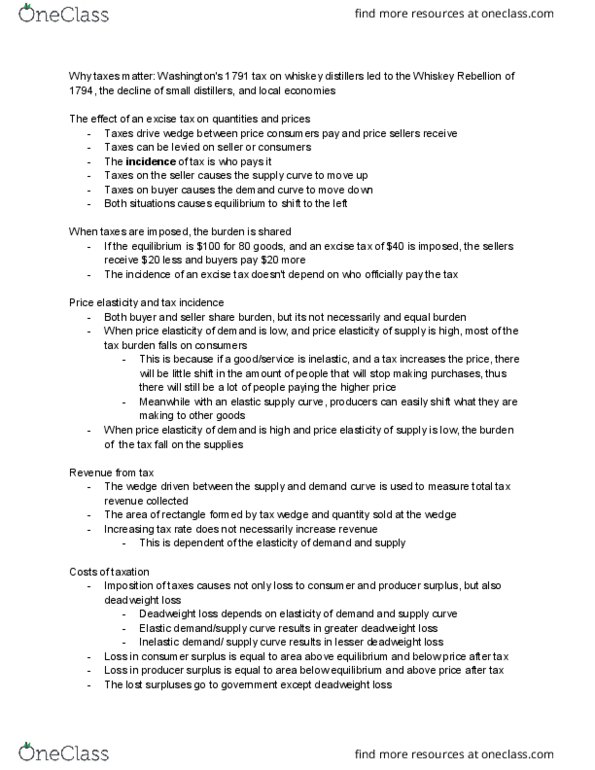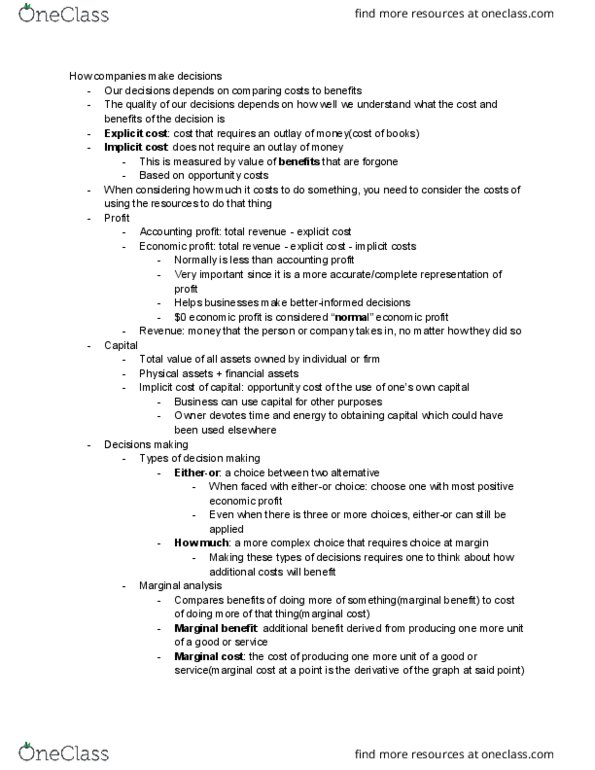01:220:102 Lecture Notes - Lecture 11: Whiskey Rebellion, Tax Wedge, Deadweight Loss
01:220:102 verified notes
11/22View all
Document Summary
Why taxes matter: washington"s 1791 tax on whiskey distillers led to the whiskey rebellion of. 1794, the decline of small distillers, and local economies. The effect of an excise tax on quantities and prices. Taxes drive wedge between price consumers pay and price sellers receive. Taxes can be levied on seller or consumers. The incidence of tax is who pays it. Taxes on the seller causes the supply curve to move up. Taxes on buyer causes the demand curve to move down. Both situations causes equilibrium to shift to the left. When taxes are imposed, the burden is shared. If the equilibrium is for 80 goods, and an excise tax of is imposed, the sellers receive less and buyers pay more. The incidence of an excise tax doesn"t depend on who officially pay the tax. Both buyer and seller share burden, but its not necessarily and equal burden.







